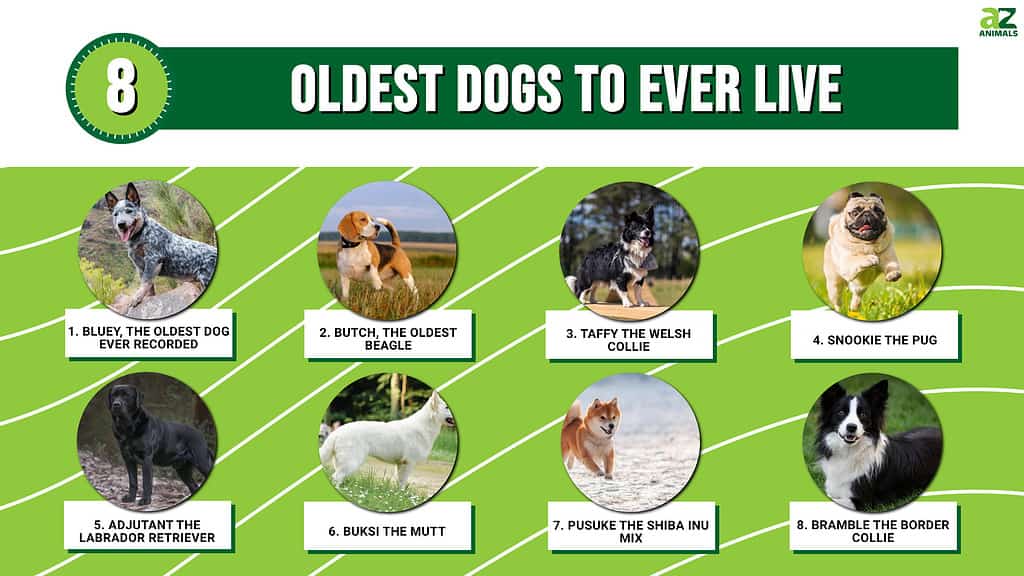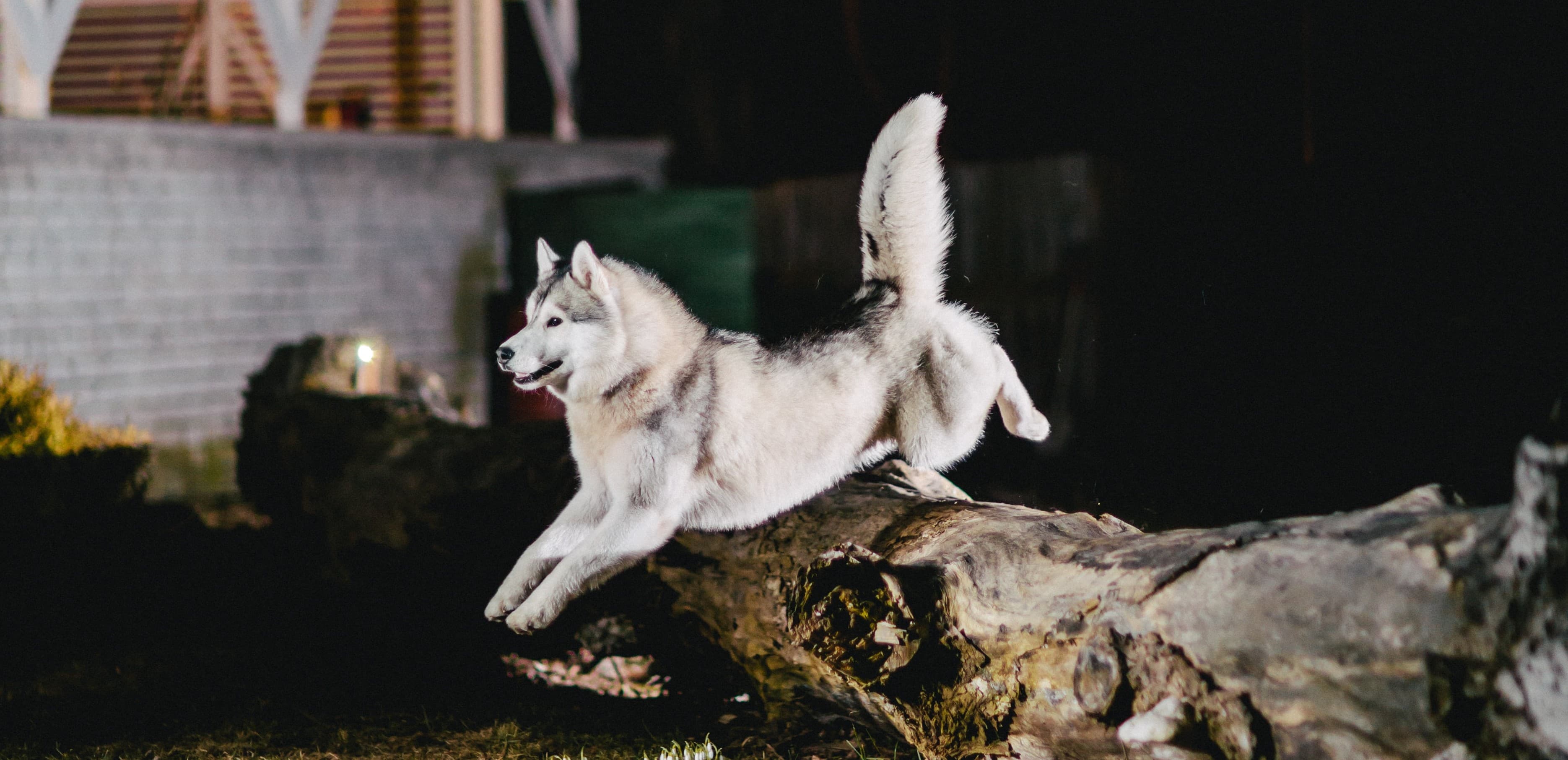The Chihuahua is the longest living dog breed on average, followed by the New Guinea Singing Dog, Cockapoo, Toy Poodle, Shih Tzu, Jack Russell Terrier, and Maltese. These breeds are known for their longevity and spirit.
When it comes to choosing a dog breed, many pet owners consider the lifespan of the dog as an important factor. After all, we want our furry companions to be with us for as long as possible. While the lifespan of a dog can vary depending on various factors such as genetics, diet, and overall health, there are certain breeds that are known for their long life expectancy.
We will explore the top 7 longest living dog breeds and discover why they are known for their longevity. Whether you are looking for a small or medium-sized dog, these breeds will be a great choice if you want a furry friend who will be by your side for a long time. So, let’s dive in and find out which dogs live the longest.

Credit: a-z-animals.com
Factors Affecting Longevity
The top 7 longest living dog breeds, including Yorkshire terriers, Chihuahuas, and Dachshunds, tend to have smaller sizes, contributing to their longevity. These breeds, along with Toy Poodles and Lhasa Apsos, have been known to live the longest.
Factors Affecting Longevity When it comes to dog ownership, one of the main concerns for pet parents is the lifespan of their furry companion. Understanding the factors that can affect a dog’s longevity is crucial in ensuring that they live a healthy and fulfilling life. Several factors come into play when determining how long a dog breed can live: the size of the breed, genetic health, and lifestyle and care. Let’s take a closer look at each of these factors.Size Of The Breed
The size of a dog breed plays a significant role in its lifespan. Smaller dog breeds tend to have longer lifespans compared to larger breeds. This is because smaller breeds generally have fewer health issues and experience fewer physical strains on their bodies. Yorkshire Terriers, Chihuahuas, Dachshunds, Toy Poodles, and Lhasa Apsos are examples of smaller breeds that are known for their longevity.Genetic Health
Genetic health is another vital factor that determines a dog’s lifespan. Some breeds are genetically predisposed to certain health conditions, which can impact their longevity. Responsible breeders focus on breeding dogs with good genetic health to ensure the offspring inherit fewer health issues. Regular health check-ups, proper vaccinations, and a balanced diet are essential in maintaining the overall health and well-being of a dog.Lifestyle And Care
The lifestyle and care provided to a dog also contribute significantly to its longevity. Regular exercise, mental stimulation, and a healthy diet are crucial in promoting a dog’s well-being and extending its lifespan. Dogs that receive proper care, including routine vet visits, dental care, grooming, and a safe living environment, have a greater chance of living a longer and healthier life. In conclusion, the size of the breed, genetic health, and lifestyle and care are the key factors that can affect a dog’s lifespan. By understanding these factors and incorporating the necessary measures into their care routine, pet owners can ensure their furry friends live long and fulfilling lives. Remember, adopting a dog is a commitment, and providing them with the best possible care is essential for their well-being.
Credit: basepaws.com
Top 7 Longest Living Dog Breeds
Discover the top 7 longest living dog breeds and find out which dogs live the longest. From Chihuahuas to Australian Shepherds, these breeds are known for their longevity.
When it comes to choosing a dog as a companion, one of the top considerations is their lifespan. Nobody wants to say goodbye to their furry friend too soon. That’s why we’ve compiled a list of the top 7 longest living dog breeds, so you can ensure that your dog will be with you for many happy years to come.
Maltese
The Maltese is a small and elegant breed known for its long, silky white coat. These adorable dogs have an average lifespan of 12 to 15 years. Despite their small size, Maltese dogs are full of energy and love to play. With proper care and regular exercise, a Maltese can live a long and happy life by your side.
Beagle
The Beagle is a friendly and lovable breed that is famous for its exceptional sense of smell. Beagles have an average lifespan of 10 to 15 years. Their sturdy build and lively nature make them great companions for active families. With their adorable floppy ears and wagging tail, Beagles bring joy and companionship wherever they go.
Australian Shepherd
Australian Shepherds have been by man’s side for a very long time. Having evolved from glorious hunting dogs into excellent herders, these intelligent and active dogs have an average lifespan of 12 to 15 years. Australian Shepherds are known for their loyalty and dedication to their families. They are highly trainable and can excel in various activities and sports.
Shih Tzu
The Shih Tzu is a small and affectionate breed known for its luxurious and flowing coat. These adorable dogs have an average lifespan of 10 to 16 years. Despite their regal appearance, Shih Tzus are friendly and playful companions. They love to be the center of attention and will happily curl up in your lap for hours on end.
Lhasa Apso
The Lhasa Apso is a small but mighty breed that originated in Tibet. With an average lifespan of 12 to 15 years, these dogs are known for their alertness and loyalty. Lhasa Apsos may be small, but they have a big personality. They make excellent watchdogs and will fiercely protect their loved ones.
Cockapoo
The Cockapoo is a hybrid breed, resulting from a mix between a Cocker Spaniel and a Poodle. These charming dogs have an average lifespan of 12 to 15 years. Cockapoos are known for their friendly and outgoing nature. They are highly adaptable and make great companions for individuals and families alike.
Jack Russell Terrier
The Jack Russell Terrier is a lively and energetic breed known for its boundless energy and intelligence. These dogs have an average lifespan of 13 to 16 years. Jack Russell Terriers are full of personality and love to be the center of attention. They excel in various dog sports and activities, making them a great choice for active individuals.
Common Health Concerns
When it comes to the well-being of our furry friends, understanding the common health concerns of different dog breeds is crucial. By being aware of potential health issues, we can take proactive measures to ensure our dogs live long and healthy lives. In this section, we will focus on the common health concerns of small breeds and medium to large breeds.
Small Breeds
Small dog breeds are known for their longevity, often living longer than larger breeds. However, they may have their own unique health concerns. Here are a few common health concerns to watch out for:
- Dental Problems: Small breeds are prone to dental issues such as gum disease and tooth decay. Regular dental care, including brushing their teeth and providing appropriate dental treats, is essential.
- Patellar Luxation: This condition, commonly known as “trick knee,” occurs when the kneecap slips out of place. Small breeds like Yorkshire Terriers and Chihuahuas are more susceptible to this condition.
- Collapsed Trachea: Breathing difficulties due to a collapsed trachea can occur in small breeds like the Lhasa Apso. It is important to avoid excessive pulling on the leash and using a harness instead of a collar.
- Hypoglycemia: Low blood sugar levels can be a concern in small breeds. It is important to feed them small, frequent meals and monitor their overall health.
Medium And Large Breeds
While medium and large dog breeds may not live as long as their smaller counterparts, they can still enjoy a healthy and fulfilling life. Here are some common health concerns for medium and large breeds:
- Hip Dysplasia: This genetic condition affects the hip joints, causing pain and reduced mobility. Large breeds like the Bernese Mountain Dog and the Irish Wolfhound are prone to hip dysplasia. Regular exercise, a balanced diet, and prompt veterinary care can help manage this condition.
- Bloat: Also known as Gastric Dilatation-Volvulus (GDV), bloat is a life-threatening condition that can affect deep-chested breeds like the Dogue de Bordeaux and the Newfoundland. Feeding smaller, more frequent meals and avoiding vigorous exercise after meals can help prevent bloat.
- Cancer: While cancer can affect any breed, certain medium and large breeds may be more predisposed to certain types of cancer. Regular veterinary check-ups and prompt detection are crucial in managing cancer.
- Heart Disease: Some medium and large breeds, such as the Cavalier King Charles Spaniel, may be prone to heart diseases. Regular cardiovascular check-ups and a heart-healthy diet can help maintain their heart health.
Remember, these are just a few common health concerns for small, medium, and large breeds. Each individual dog is unique, and proper care, regular veterinary visits, and a healthy lifestyle are key factors in ensuring a long and happy life for our beloved companions.

Credit: www.pinterest.com
Tips For Increasing Lifespan
When it comes to increasing the lifespan of your beloved dog, there are several key factors to consider. From regular vet check-ups to providing proper nutrition and maintaining a safe environment, here are some essential tips to help your dog live a long and healthy life.
Regular Vet Check-ups
Regular veterinary check-ups are crucial for your dog’s overall health and longevity. Schedule routine visits with a trusted veterinarian to monitor your dog’s well-being, address any potential health issues early on, and ensure they receive necessary vaccinations and preventative care.
Proper Nutrition
Providing your dog with a balanced and nutritious diet is essential for their longevity. Consult with your veterinarian to determine the best type of food for your dog’s specific breed, age, and health condition. Remember to avoid overfeeding your dog and be mindful of their caloric intake to prevent obesity, which can lead to various health problems.
Exercise And Mental Stimulation
Regular exercise and mental stimulation play a significant role in extending your dog’s lifespan. Engage your dog in daily physical activities such as walks, playtime, and interactive games. Mental stimulation through training, puzzle toys, and socialization is equally important to keep your dog’s mind sharp and promote overall well-being.
Maintaining A Safe Environment
Your dog’s living environment should be safe and free from potential hazards. Ensure your home is pet-proofed by removing toxic plants, securing hazardous items, and providing a comfortable resting area. Regularly inspect and maintain your backyard to prevent accidental injuries, and always supervise your dog when they are outdoors to minimize the risk of accidents.
Frequently Asked Questions Of Top 7 Longest Living Dog Breeds – Which Dogs Live The Longest?
What Breed Of Dog Lives The Longest On Average?
The Chihuahua is the breed of dog that lives the longest on average, along with other small breeds like Yorkies and Toy Poodles. These smaller breeds tend to have longer lifespans compared to larger breeds.
Which Dog Can Live 20 Years?
The smaller dog breeds, such as Yorkshire terriers, Chihuahuas, and Toy Poodles, tend to live the longest, averaging around 20 years.
What Is The Healthiest And Longest Living Dog?
The healthiest and longest living dog breed is the Chihuahua, known for its small size and robust health.
Which Pet Has The Longest Lifespan?
The Chihuahua is the pet with the longest lifespan among dogs, living on average between 12 to 20 years.
Conclusion
As we’ve explored the top 7 longest living dog breeds, it’s clear that smaller breeds tend to live the longest. From the energetic Chihuahua to the playful Beagle, these dogs have proven to have plenty of spirit and vitality. While each breed has its own unique characteristics and needs, one thing is for certain – they have the potential for a long and fulfilling life.
Whether you’re looking for a small companion or a lively family dog, these breeds offer a great option for those seeking a lifelong furry friend.







